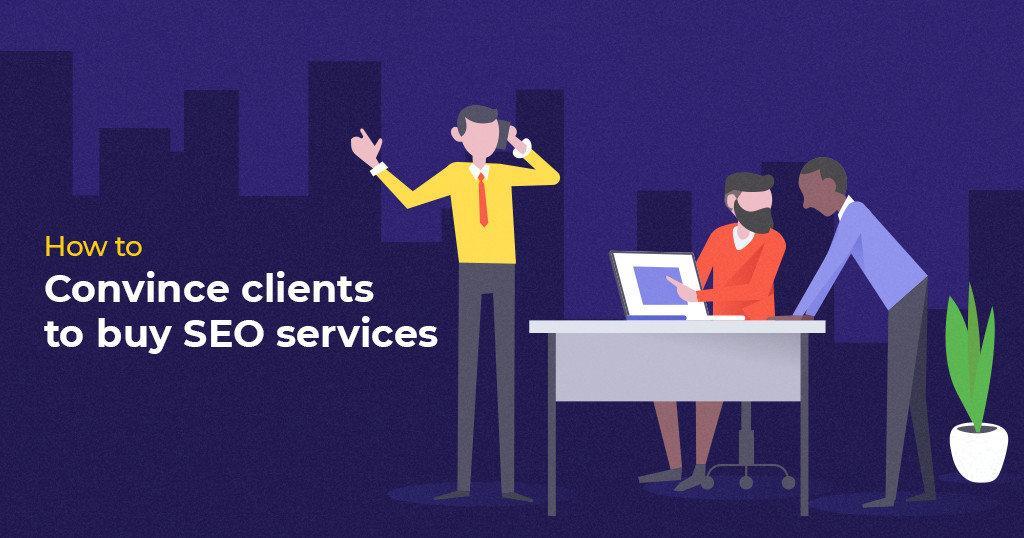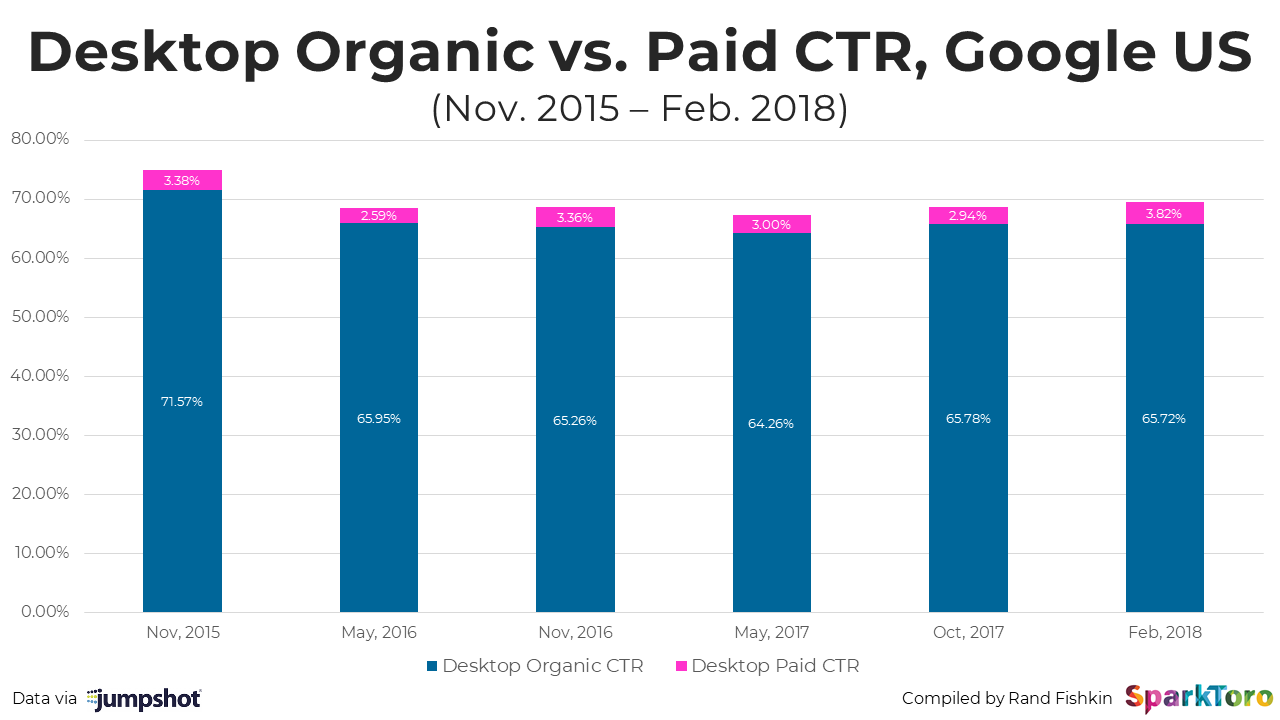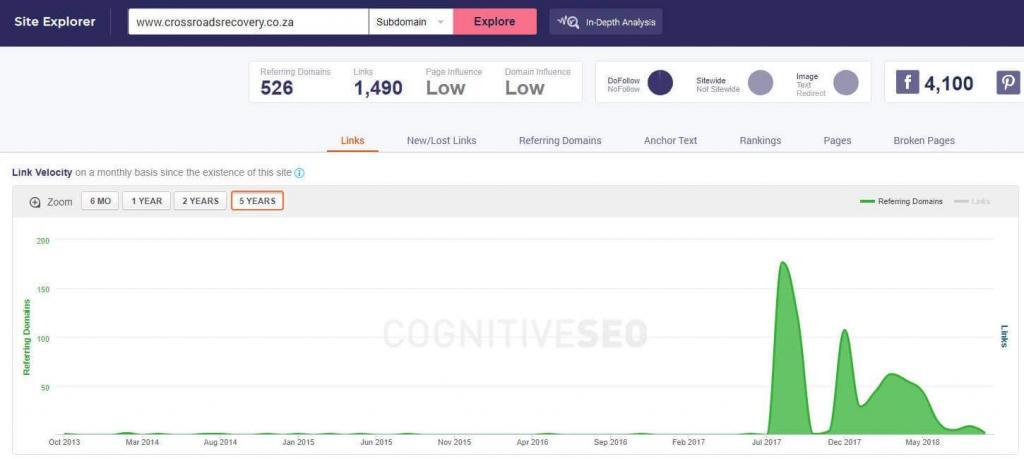Convincing clients to buy your SEO services is hard. Although it’s a growing market and people become more aware of its value, they still don’t see its true potential. They have a ton of objections and questions, especially if you’re the one approaching them to make a sale.
I’m sure prospects have told you plenty of times things like Can you guarantee #1 positions? or It takes too much time, Adwords brings me instant results.

If you don’t answer those questions and objections properly, you risk failing to secure the deal. So, if you want to know how you can easily convince new clients and prospects to buy your SEO services, here is a list of answers to common questions and objections that clients have.
Hopefully, these answers will help you secure more deals. However, they are not definitive answers and will not guarantee a sale. If you’ve encountered any other questions that clients often ask, please type them down in the comments section and let us know.
- Can You Guarantee Me #1 Positions?
- How Much Does It Cost to Get to the Top?
- Can I Pay You After I See the Results?
- I Have Previously Hired an SEO Expert with No Results
- I Already Do Adwords, Is SEO Better?
- Can You Show Me Some Previous Work and Results?
- Why Are My Competitors Ranking Better?
- How Long Until I Get to #1?
- Why Does SEO Take so Long?
- Can You Speed up the Process?
1. Can You Guarantee Me #1 positions?

This is probably the most often asked question, as well as the first to pop out of a potential or new SEO customer:
It’s annoying and you almost want to roll your eyes at it. But you can’t do that if you want to sell something.
Here’s the deal:
If you want to sell more SEO services, you have the duty of educating your clients and also of managing their expectation. This is a very tough industry and also a very misunderstood one. A lot of people lie to their customers in order to sell their services. They tell them they can rank them #1 for any keyword in record time (and they probably can) but they never tell them about the risks involved.
To understand why nobody can actually honestly guarantee top positions on Google, clients must also have a basic understanding of how search engines work.
Google tries to rank the best possible website. It doesn’t always succeed, but most of the time it’s right.
They have to understand that nobody knows for sure how Google ranks websites, but there are some best practices you can follow to try to get there and also some very risky methods that can later affect rankings.
You can, however, reassure them that you’ll do everything that stands in your power to try to get them rank #1 with as many keywords as possible, without compromising the future of their website in the search results.
Answer: Nobody can guarantee you #1 positions and if they do, they’re lying. Google’s algorithms are secret and they’re constantly changing. Also, this very much depends on the website’s current level of optimization, how tough the competition is and the available budget. I can’t guarantee #1 positions but I can guarantee that I’ll do my very best to try to get you website there.
2. How Much Does It Cost to Get to the Top?
 To answer this, we require your client or prospect to answer some of your questions first. The truth is, you can’t determine a real cost for ranking at the top, but you can determine an adequate budget to see progress over time.
To answer this, we require your client or prospect to answer some of your questions first. The truth is, you can’t determine a real cost for ranking at the top, but you can determine an adequate budget to see progress over time.
Depending on the competition, this budget might be smaller or bigger. Of course, it also depends on other factors, such as the client’s team or how big the website is.
Does the client have their own writers, programmers and designers? If yes, then you might be able to cut some of the expenses for them.
You’ll also need to know how optimized their website is already. If it’s already pretty tidy, then you can spend more time on content creation and distribution. If it’s a real mess, you’ll have to clean that first which raises the costs.
Answer: This really depends on where you’re at right now and where you want to be. It’s also influenced by how tough your competitors and the industry you’re in are. Lastly, there are other factors that we can take account for: How well is your website already optimized? Do you have your own writers, programmers and graphic designers? If yes, you might be able to cut costs. If not, the expenses will go up.
3. Can I Pay You After I See the Results?
Now it’s up to you if you’re desperate enough to engage in such deals, but I’d strongly advise you not to do it.
On the one hand, it might take several months until you see any results with a website. Secondly, the client and you might have a different view on what ‘results’ mean.
Lastly, if the client asks for such things, I’m pretty sure they don’t have their own team of writers, programmers and graphic designers. We all know that SEO involves most of those things, so you’ll either have to quadruple your work or spend money to outsource it. It doesn’t make any sense.
If a client asks for such thing, chances are that they will find something to argue about to avoid paying. Having a legit business going can really help. You’ll be more authoritative and trustworthy this way. Not to mention you can always set up a very well made contract that both parties can sign before starting the collaboration.
Answer: If someone required your services, would you be willing to put up the work upfront and let the client pay at the end if they think they should? You don’t pay for the results, you pay for the labor. Your work will improve their website regardless of how fast it will increase in rankings. I will however come up with a detailed monthly report to state what work has been done and the effects that work had on the website and its rankings.
4. I Have Previously Hired an SEO Expert with No Results
 Some clients can be suspicious themselves, having switched between multiple SEO specialists in a very short amount of time, which leads one to think that the SEOs were not really the problem. So be careful in this regard, otherwise you might end up with a guaranteed bad review, regardless of your effort and results.
Some clients can be suspicious themselves, having switched between multiple SEO specialists in a very short amount of time, which leads one to think that the SEOs were not really the problem. So be careful in this regard, otherwise you might end up with a guaranteed bad review, regardless of your effort and results.
First of all, let them know that it’s great that someone has previously worked on the website. You can learn from that and use it to your advantage. Secondly, don’t try to trash your fellow SEO’s work, unless it’s really destructive. For example, I’ve seen someone build a ton of spammy links while not even changing the titles accordingly to include the keywords. That you should point out and be unforgiving about.
If you want to be completely transparent, you can even show them this video from Google. Tell the client that your services are in alignment with what Maile says in this video.
The transparency will gain you their trust and, as long as your services are genuine and your portfolio satisfying, you’ll have greater chances of securing the deal.
Keep in mind that the client’s expectations might be off alignment. The previous SEO might be a great SEO but a not so great sales person or entrepreneur. As Maile said above, a website’s rankings should reflect a business’s level and an SEO should also engage in improving different aspects of the business in order to be effective.
Answer: I’m sorry that you’ve had bad experiences before. However, it’s also a good thing because we can learn from the past to avoid future mistakes. I would suggest that we start with an analysis of your website to see where the issues are. It’s a much smaller, one time fee and you can decide afterwards if you want to engage in a monthly contract.
5. I Already Do Adwords, Is SEO Better?
 This objection can actually take many forms. Clients might tell you that Adwords bring up results, or ask you to compare Adwords with SEO. If you want a comparison between those, you can check out our article about SEO vs. PPC where you can find many answers you can present to your client.
This objection can actually take many forms. Clients might tell you that Adwords bring up results, or ask you to compare Adwords with SEO. If you want a comparison between those, you can check out our article about SEO vs. PPC where you can find many answers you can present to your client.
But the short answer here is pretty simple and it’s actually a very good argument that backs you up.
Adwords prices are only going up, as ad CTR in search engines is dropping and people use more and more Ad Blockers.

It’s good to find a balance between the two. Although SEO might be better on the long term, PPC is definitely useful early on. You can also keep doing PPC even when you’re ranking high in organic results. It’s always good to rank multiple times on Google for the same keyword.
Answer: Adwords is a great advertising platform and it’s definitely useful in the beginning. However, you’ll always have to pay for it. Also, many people these days are using AdBlockers. You might even have one on your PC right now! The truth is people click more on organic search results. Ads on Google only get about 2-3% CTR (and it has been decreasing) while the rest goes to organic searches. That’s why the average cost per ad will only be going up. Keep in mind that SEO takes a little time, so the sooner you start, the better.
6. Can You Show Me Some Previous Work and Results?
This is a question I can’t answer for you. But you have to be aware of it! Prepare your portfolio wisely. If you’re just starting out, you’re going to have to prove yourself by working for free or smaller pay for some friends and relatives.
Another great way to do this is to have your own blog/websites that rank well for keywords related to SEO.
You can then give that as an example that you know what you’re doing. Some people who land on your site through organic search will already know you’re up to the task, since you’re ranking high.
That’s one of the reasons we here at CognitiveSEO don’t do much PPC. Our main stream of traffic is our organic traffic. We’re trying to practice what we preach to show people that we actually know what we’re talking about.
7. Why Are My Competitors Ranking Better?
 This is a question many clients ask themselves every day. They have a beautiful website, which in their eyes is the best and they don’t understand why their competitors’ ugly looking ones always rank better.
This is a question many clients ask themselves every day. They have a beautiful website, which in their eyes is the best and they don’t understand why their competitors’ ugly looking ones always rank better.
So the fabulous question emerges: Why are my competitors ranking so well with their $#177¥ websites?
Well… I can remember Karl Gilis from AgConsult showing an example at GPeC 2017. He asked a question and everyone got it wrong.
There were two slides showing different versions of a landing page, but after A/B testing, it turned out that the least attractive one (visually) converted better. It wasn’t particularly ugly, but this says a lot about how easily you can get things wrong. In a room full of entrepreneurs and digital marketing experts, only 2 people got it right (and I wasn’t one of them).
There are reasons why some pages convert better than others, even though they look ugly. If you don’t know what you’re doing and, especially, if you never test things, you can never know what’s better for your site.
Answer: Not to be mean, but you might think your website is the best, when in reality it might have a dozen big issues. An outdated looking website can still be the best and design doesn’t always dictate performance. Think of Amazon, Craigslist or Reddit. Very popular sites, yet simple in design. You might even say they look outdated in certain areas. However, they focus on the user experience, which dictates how well a website will eventually perform in the search engines. There’s a lot we can improve through A/B testing. You might really like red buttons and cry after them, but if green buttons convert better, I’m sure you can wipe your tears with the extra cash.
8. How Long Until I Get to #1?

That is honestly an unfair question, because it’s incomplete. Answering 6-12 months here won’t do it, because there are too many things to be taken into account.
If you’ve done SEO for a while, you’ll notice that clients are very stubborn.
You do your keyword research, prioritize some high volume keywords, rank for them, but the client is still upset because they’re not ranking for that specific keyword they think is important.
Although domain performance influences how all pages for all keywords perform in general, things still have to be taken on a case by case basis.
So there are a lot of questions that need to be answered by the client first. How many keywords are you targeting? Do you want only one keyword to rank high? Do you have hundreds of keywords you want to rank for? I’ll let you in on a secret: they have no clue what they want and can’t answer those questions anyway. It’s up to you to educate them.
Answer: Well, that really depends on many things, such as budget and competition, but it’s honestly an incomplete question. Do you want to rank #1 for one specific keyword? For one hundred keywords? For thousands? The site might grow as a whole, but some keywords might still rank faster than others, again, depending on multiple factors.
9. Why Does SEO Take so Long?
If you want to make a quick analogy, you can compare SEO with building muscle. It takes time.
It’s known that people who suddenly engage in difficult workout schedules abandon them rather quickly.
It’s the ones that do it little by little every day for extended periods of time that truly see results that last.
You can also speed up the process by taking steroids, but it’s very risky.
The same goes with SEO. If you want to have a strong website and a strong search presence, you’ll have to work. There are shortcuts and tactics that can probably speed up the process, but they’re risky and might compromise your website on the long run.

SEO is the new marketing in 2019 and forward. It involves very many things and they take time to set up:
Technical things take a lot of time to repair, especially if the website already runs on a badly implemented platform.
Content also takes time to create and distribute. That is, of course, if you want it to be qualitative. Add in design to make it prettier and increase its chances of going viral and it will take even longer.
Link acquisition: Distributing your content properly and finding good link sources isn’t something easy to do. Sure, you can use tools like the CognitiveSEO Tool to identify the best possible links that your competitors already have, but you’ll still have to secure the links on your own. There’s no shortcut for that.
Social Media presence, as long as you want a genuinely engaging one and not some fake accounts that dilute your reach, is really hard to get.
Brand awareness and trust are probably the hardest to gain. You can’t just do it overnight. It just simply takes time and you have to build it brick by brick.
A/B testing for conversion optimization should also be considered. It takes a lot of time as well and there’s no other way around. You have to do it once you fix all the other things.
All these things above result in a time consuming, combined effort often from multiple areas and departments, towards the single goal of ranking a website high.
It also depends on how well optimized your website already is, or what kind of issues it has. If it’s a crawling and indexation problem, you might see results right away once it’s fixed. If it’s already doing really well technically, you can jump directly into content creation and distribution, link building and A/B testing which might see a more gradual growth.
Answer: SEO takes time because it involves many things, from the quality of your business to the technical things happening on your website. They all need to be aligned in order for a website to rank well for an extended period of time. It’s like building muscle. You need to train little by little every day to see results on the long run. The sooner you start, the better. However, if the site has a severe underlying issue regarding an important area such as indexation, results might be seen right away.
10. Can You Speed Up the Process?
 Speeding up SEO results is possible, but you have to do it the right way.
Speeding up SEO results is possible, but you have to do it the right way.
There’s the obvious choice many people take there to engage in buying links or strict Black Hat SEO tactics.
Sometimes, the client does agree with shady tactics, even when aware of the risks. They might even insist on you performing these tactics, just to get them up there. It’s up to you if you want to do so. However, we don’t recommend them. It can be a slippery slope.
You should also remember that sometimes, implementing some basic stuff might bring in very quick results. For example, if a website has a very good domain performance but poor keyword targeting and title optimization, you can just rank better and bring more traffic by simply optimizing your meta.
It’s pretty common knowledge that White Hat SEO takes more time than Black Hat SEO. It’s also very common knowledge that White Hat SEO lasts for longer and that Black Hat SEO is very risky.
Usually, websites that earn many links in a short period of time have an unnatural link profile. Here’s a good example:

Graph from the CognitiveSEO Tool
This site above has a very high link velocity. As you can see, although the domain is quite old and it has seen some links from time to time, suddenly in 2017, there’s a spike of links followed by silence. Then in early 2018, again, there’s a very big boost, followed by almost no links in the second half of 2018. When I see this kind of link velocity, I almost immediately associate it with an unnatural link profile. You can already tell by the domain’s influence score. It’s not always the case, but it definitely is this time.

Graph from cognitiveSEO’s Unnatural Link Detection Tool
The cognitiveSEO unnatural link detection tool confirms that the site has a very unnatural link profile.
If you take a look at a website that has done things properly over an extended period of time and hasn’t pushed things around, you’ll see something like this:

Graph from the cognitiveSEO Tool
You probably notice the spikes and think they’re unnatural. However, they can be completely natural as long as the website runs legit promotion campaigns. Also, sometimes, articles that are published can get viral. However, you can see that, overall, the site has kept growing gradually.
Although there are spikes, the line doesn’t drop back to the bottom. It always keeps growing. This is a strong indicator of a natural link profile. Obviously, the tool confirms this:

Graph from cognitiveSEO’s Unnatural Link Detection Tool
The only way of speeding your process in a safe way is to raise your budget and scale the good tactics. This means you’ll have resources to fix technical issues faster and publish & distribute more content.
Many experts say that publishing content is not enough and that’s true. However, it’s the fastest way of scaling up things. More articles mean more keywords covered which inevitably results in more traffic. Obviously, the content must be qualitative and the distribution method must also be good if you want to attract attention to it.
Answer: Here’s the deal, there’s an old saying: Do you want to rank high tomorrow but only for one year or do you want to rank after one year but for a lifetime? If you want to rank very high tomorrow, just spend some money on Adwords. If we use BlackHat tactics we might see results quicker, but we risk only seeing them for a short period of time. Even worse, the website might be permanently affected afterwards. On the other hand, if we follow the guidelines and do everything right, the rankings will be there forever. The only way of speeding up the process is by increasing the budget and scaling the good things.
Conclusion
Objections and questions can be hard to handle when you try to convince clients to buy your SEO services. Here are some really interested stats on this matter.
Hopefully, these answers will help you create proposals that hit the mark better and secure deals more successfully. However, they are not definitive answers and will not guarantee a sale.
Retention is also very important if you want to sustain your SEO business. You want to build up a good portfolio. Recommendations are also the most reliable source of new clients. Mess things up and you’ll lose that stream of prospects. Make sure you do monthly reports and keep in touch with your clients to present the progress. Be engaged.
Remember, you constantly need to manage their expectations. Make sure that the budget they dispose of is in alignment with the current level of their business, the level of optimization already performed on their website, the difficulty of the competition and the expected time frame.
If the client feels like the budget is too big for what they can afford right now, while you feel like the budget is too small for the current competition and the expected time frame, you should be honest and let the client know that they don’t have enough budget.
Have you ever encountered any of these questions in your SEO services sales process? Which ones? What have you answered? Are there any other questions you’ve encountered? Let us know in the comments section below!

 Site Explorer
Site Explorer Keyword tool
Keyword tool Google Algorithm Changes
Google Algorithm Changes

Hello Adrian,
Long time lurker, first-time poster here.
I work in the legal marketing industry as an SEO specialist and have come across these problem multiple times. Great insights here and some seriously good tips.
One thing I would like to ask is; once you do get that client that golden #1 spot how do you keep them from leaving?
Will, I’m glad you asked!
Well, SEO is ongoing, so you can mention a few things such as:
– competitors might start spending more budget since we’ve just beat them
– Google might find it suspicious that we’ve suddenly stopped posting things and getting quality backlinks
– there are always things we can improve
Usually, you’ll get #1 for some keywords, but never for all. So you can always expand your KW research to new horizons.
But in the eventuality that the client only targets 5-10 KWs and they’re all ranking #1, then you can offer him a maintenance discount. Lower the budget so that he keeps paying, but also lower the quantity of services and make room for new clients.
So if you’ve been posting 4 times a week on the blog, once you reach #1 you might consider posting 2 times per week. Be honest with the client.
Also, sometimes if the client is well up on their feet and they have a team set up that now does its own KW research and link building outreach, maybe it’s simply time to move on and try to help someone that needs it more 🙂
Here are the questions I receive always.
“Please send me more information in regards to site conversion” after sending technical issues or SEO metrics. Most of the prospects are silent after getting a technical audit or SEO metrics. What to answer and convince them.